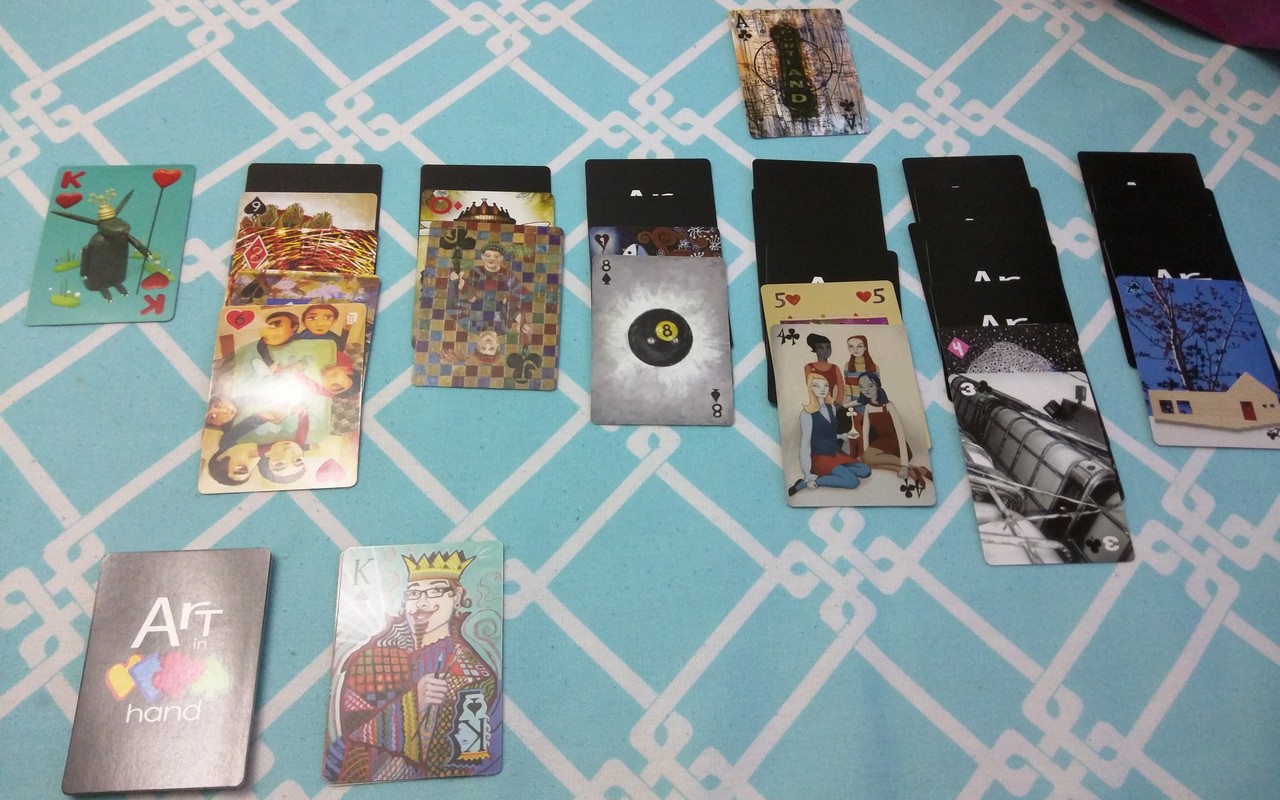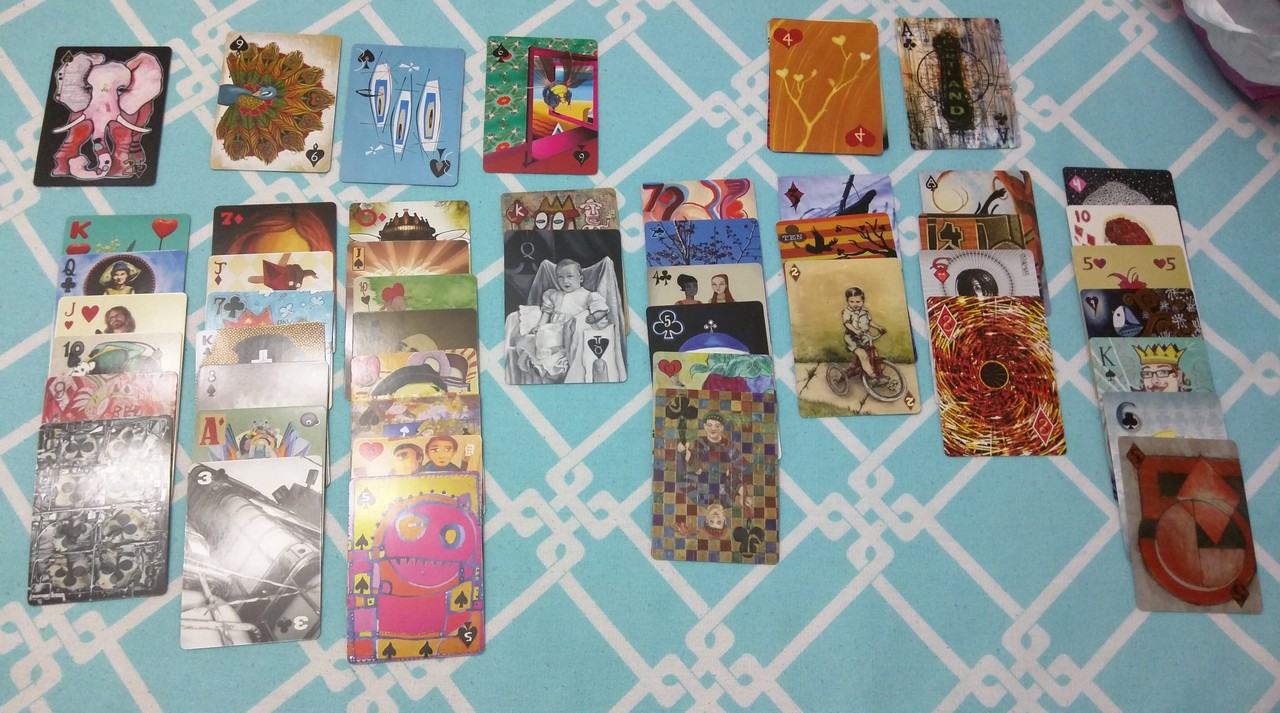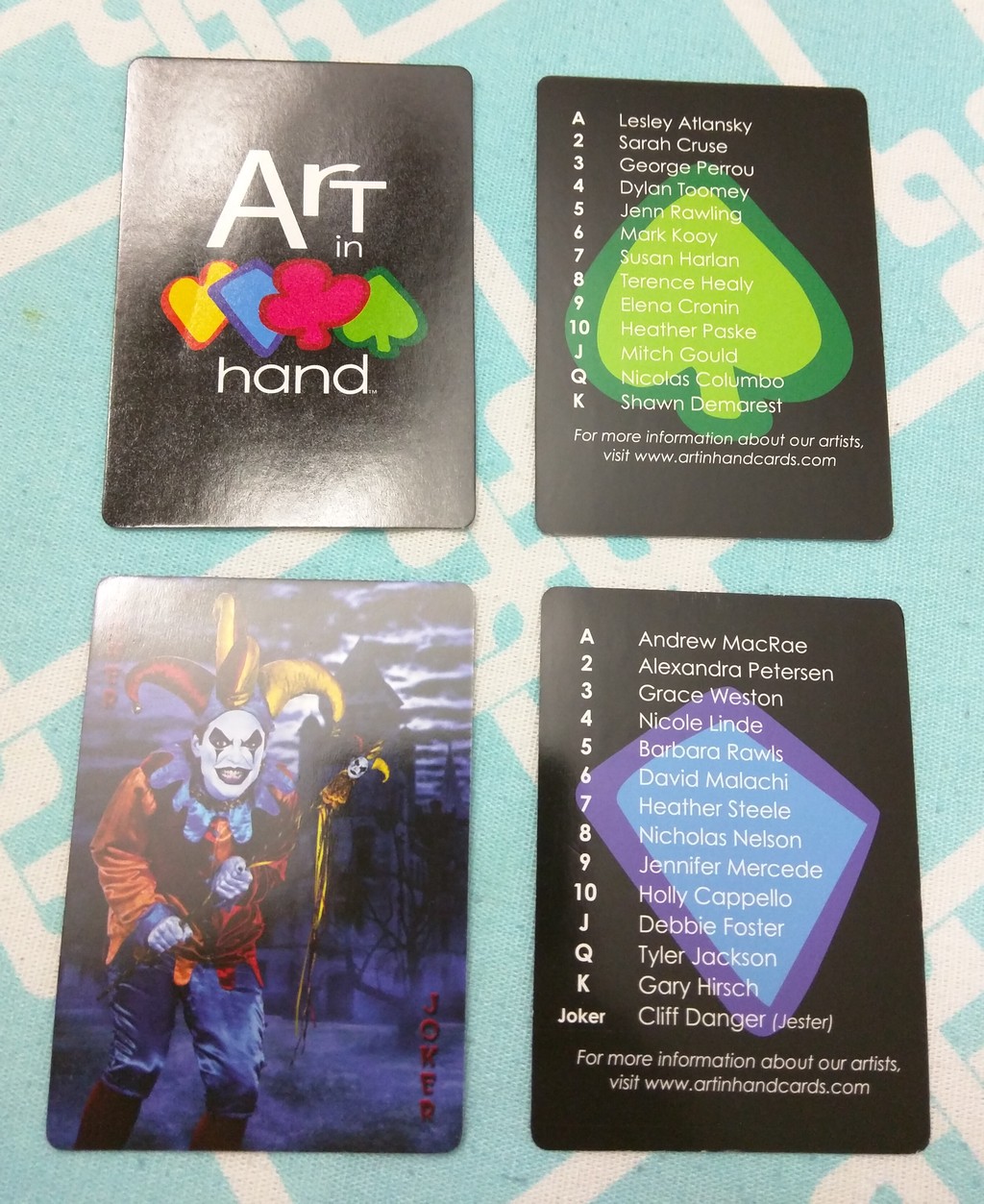
Sometimes, a deck of cards is not specifically designed to be playable. Okay, yes, I've covered several such decks in the past - the recipe cards and WWII spotters are a few such decks - but those are decks that had a primary purpose other than regular card play, that just happened to have suits and ranks printed on them for multi-functionality. In the case of The Portland Project deck, however, there is no other "function." They don't contain drink recipes, or serve as flash cards. They're just pretty to look at, and this is very much at the expense of playability - it's art for the sake of art, but given the deck's nature, I can forgive it just for how much variety it shows.
The Portland Project is one of (so far) four decks - others including decks themed around Charlotte, North Carolina, and Washington, DC - by Art in Hand Cards (whose website is dead as of 2024 -ww), a playing card maker whose purpose is to gather local art from specific cities around the United States to turn into a 54-card deck. Each card is drawn, painted, photographed, or otherwise created by a different artist from the area, with the only "theme" being the specific rank and suit they've been assigned. Some artists in the Portland Project don't even stick to that theme; the 3 of Clubs, for example, appears to be a photograph of a building at a Dutch angle, while the Ace of Clubs is a heavily stylized depiction of one of Portland's famous "Portland" signs.

These cards are at their best when playing a game where cards don't need to be face-down - something like FreeCell works nicely, except that it's very hard to find specific cards.
There is so much variety in the fact that there's no standardization whatsoever to the designs, that it's actually quite difficult to identify some cards at a glance. But playing a large-scale game like FreeCell is perhaps the ideal way to experience the Portland Project - and it is exactly that, an experience - as it encourages you to examine each card carefully in order to find the one you need. In this way, I found that I wound up being very impressed by how clever some of the depictions were, even if my average game took significantly longer with this deck than with another, more "visible" one. (That's probably for the better, as the cards don't feel quite as smooth as a Bicycle deck might, and care must be taken to avoid damaging either the cards or the undersides of your fingernails - ouch!)
Those who want to fully experience the Portland Project may also be happy to know that the deck includes two "credits" cards, listing every artist's name alongside the card that they illustrated.

The two "credits" cards, the rather uninteresting backside, and one of the two Jokers, this remarkably creepy one by Cliff Danger. My apologies if you're a sufferer of coulrophobia.
Really, then, actually owning the Portland Project deck - or in fact any of the other decks from Art in Hand - is owning it for the same reason that you might buy a photograph or painting. You could play with it, but that almost goes against the artistic effort on display, especially if your game of choice requires cards to be face-down (like Klondike or Stonewall). Instead, perhaps you'd own this deck to shuffle it once in a while and draw a random piece of art to observe and admire. Or put them all in a binder, like trading cards, just because they're so neat to look at and show off.
Me, though, I'm keeping them in their little cardboard box. Not because they don't deserve to be on display, but because - even though they're decidedly not playable - they do deserve to be played with.